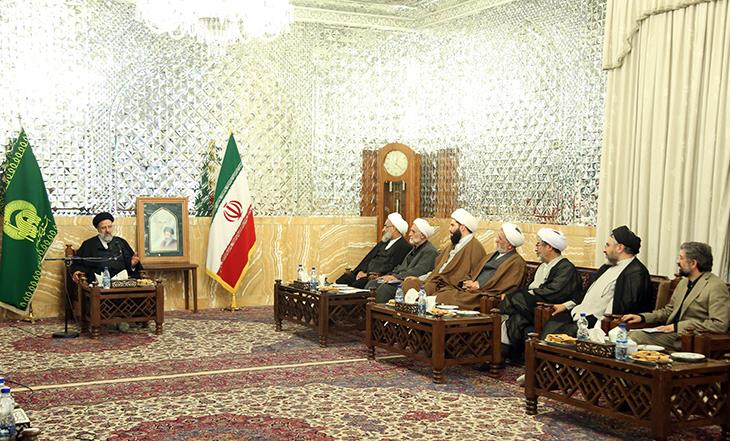Hawzah News Agency- Hujjat al-Islam Sayyid Ibrahim Raeisi in a meeting held on Wednesday, November 3 in Wilayat auditorium of the Razavi Holy Shrine viewed the mosques as centers for worshipping, establishment of morality, and the focus of social, cultural and political movements in the Islamic society and reiterated, “Getting awareness of the needy people and solving their problems, as well as raising insightfulness concerning the current issues of the country are the benefits of the mosques.”
The Member of the Supreme Council of Khorasan Seminary considered the mosques as social networks in the Islamic world and said, “Today, the arrogants have realized the networking role of the mosques and hence it is trying hard to damage it. Mosques are a gift possessed only by Islamic societies while the arrogants are deprived of this gift.”
Stressing that mosques are an Islamic center for formation of public associations and communications revolving around litany and prayer, the Grand Custodian of Astan Quds Razavi added, “Throughout Islamic history, mosques have always been centers for consultation, cooperation and deciding over crucial social, political, and military issues and such a function has been always efficient both before and after the revolution.”
Describing the mosque as a center for human construction, recognizing the enemy and fighting the enemy, raising insightfulness, and preparation for creating the Islamic civilization, he remarked, “Congregational prayer leaders of the mosques should remain committed to cultural affairs as strongly as in the beginning of the revolution; the right of mosques should not be overlooked by marginal looks to this significant mission.”
“The mosque is the hub of different social activities with a drastic role in ideological strengthening and encouraging people to various social activities; therefore, congregational prayer leaders and seminarians have a critical responsibility regarding the mosques”, he concluded.
End.

